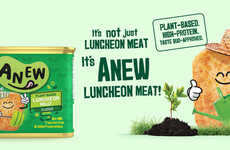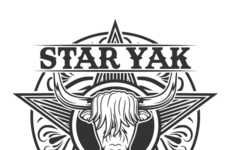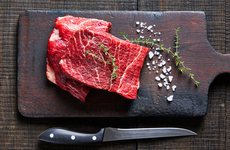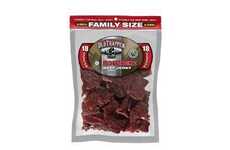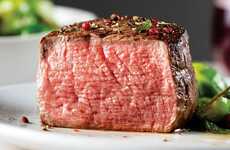



Nose-to-tail meat-eating businesses help cut down on food waste
Trend - Influenced by Native communities that used all parts of the animals they hunted, nose-to-tail consumption is becoming popular. Now, businesses like restaurants and delis are using parts of animals that would otherwise go to waste in order to prioritize ethical and sustainable consumption.
Insight - Waste-reduction is a major component not just of reducing the impact of climate change, but in ensuring that the Earth's resources aren't depleted while they're needed. With their climate anxiety worsening, consumers are increasingly aware of the need to cut down on global waste, and are turning to brands that are able to promise sustainable business models that do just that. These models are particularly impactful when they're rooted in longstanding traditions.
Insight - Waste-reduction is a major component not just of reducing the impact of climate change, but in ensuring that the Earth's resources aren't depleted while they're needed. With their climate anxiety worsening, consumers are increasingly aware of the need to cut down on global waste, and are turning to brands that are able to promise sustainable business models that do just that. These models are particularly impactful when they're rooted in longstanding traditions.
Workshop Question - How could your brand better prioritize sustainability?
Trend Themes
1. Complete Consumption - Consumers are seeking sustainable business models that prioritize ethical consumption and waste-reduction, leading to the popularity of nose-to-tail consumption practices.
2. Grass-fed Agriculture - Companies like Nose-to-Tail Offer Regeneratively Raised Meat and Frida's Field are committed to grass-feeding their animals, inspiring the trend of grass-feeding livestock as the most nutrient-dense and environmentally sustainable method.
3. Boutique Butchery - Prospect Butcher Co.'s success as a pop-up boutique butcher shop has inspired the opening of nose-to-tail butcher establishments that prioritize local sourcing of meat and unconventional cuts.
Industry Implications
1. Food and Hospitality - The nose-to-tail consumption trend has disrupted the food and hospitality industry by highlighting the importance of sustainable and ethical consumption practices.
2. Agriculture - Grass-fed agriculture has revolutionized the livestock industry as consumers seek out environmentally sustainable business practices and healthier, nutrient-dense meat options.
3. Retail - Boutique butchery shops have disrupted the retail industry by offering high-end, unconventional cuts of meat sourced from local farms, appealing to consumers seeking unique and sustainable food options.

